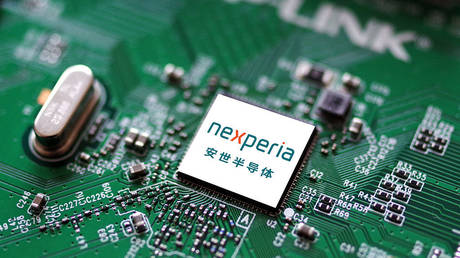The Dutch government is considering returning control of the semiconductor manufacturer Nexperia to its Chinese owners, Wingtech Technology. This potential shift follows Beijing’s resumption of critical semiconductor supplies, as reported by Bloomberg on March 15, 2024. Last month, the Netherlands invoked a rarely used emergency law to seize control of Nexperia, citing concerns over economic and technological security within the European Union.
The takeover came amid rising global trade tensions, with the Dutch authorities acting under pressure from the United States, which has its own trade disputes with China. The intervention drew criticism from Wingtech, which characterized the government’s actions as an “act of excessive interference driven by geopolitical bias.”
Following the Dutch seizure, Beijing responded by restricting exports from Nexperia, which accounted for approximately half of the company’s total output. This restriction had immediate repercussions in the automotive sector, leading to production cuts at various European plants. As a result, several automakers, including Volkswagen, Stellantis, and BMW, faced disrupted operations.
Negotiations between the Dutch government and Chinese officials appear to have yielded positive results. On Thursday, the Dutch government expressed optimism that Nexperia’s Chinese unit would resume chip supplies shortly, describing recent discussions with Beijing as “constructive.”
Philipp von Hirschheydt, CEO of Aumovio SE, a parts supplier for major automotive manufacturers, confirmed that China’s Commerce Ministry effectively lifted the broader Nexperia export ban. He stated that his company had received an export license, enabling the shipment of Nexperia-made semiconductors and components to clients. Other manufacturers, such as Honda and Bosch, also reported a resumption of shipments, facilitating the gradual restart of disrupted production lines.
Sources indicated that Chinese authorities have reassured automakers that Nexperia parts could now be exported without complications, addressing immediate supply shortages. The semiconductor industry remains a sensitive area due to its dual-use nature in civilian and military applications, underscoring its significance in global technology and security.
As the situation evolves, the Netherlands’ initial takeover of Nexperia reflects broader tensions between China and the EU, particularly regarding allegations of dumping and industrial overproduction. Recently, Beijing has tightened export controls on rare earth elements and magnets, further impacting the EU’s already struggling automotive industry.
The potential return of Nexperia to its Chinese owners will likely be monitored closely by industry stakeholders and government officials, given the strategic importance of semiconductor manufacturing in today’s global economy.







